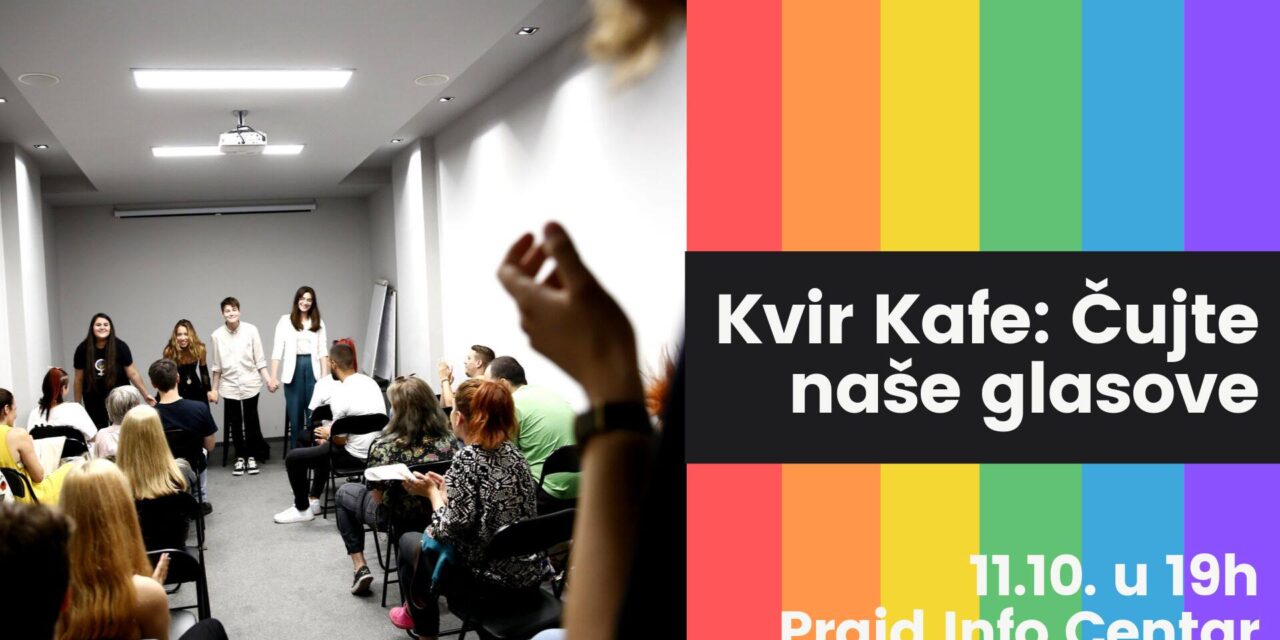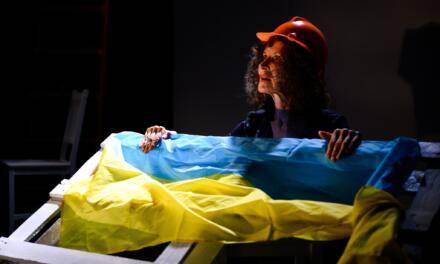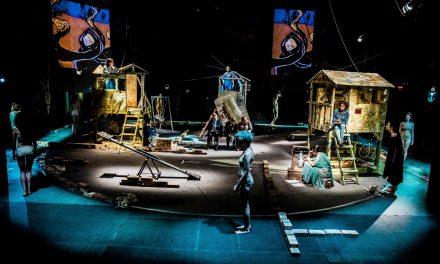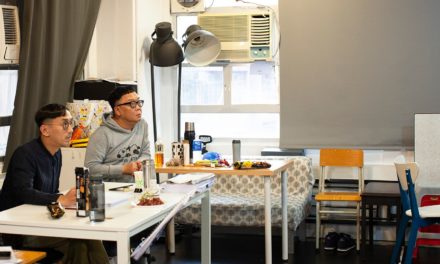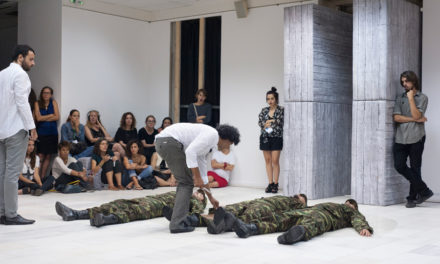I am writing this article from the perspective of a dramaturg and theatre critic who has been working for several years, primarily in the field of Serbian theatre. While still a student of dramaturgy (formerly at the Faculty of Dramatic Arts in Belgrade, now at the Academy of Arts in Novi Sad) and having participated in two significant courses in theatre criticism (one organized by the Serbian Association of Theatre Critics and Scholars and the other by the International Association of Theatre Critics), I’ve been a regular observer and researcher of theatre life. I’ve also written theatre critiques online, and for print, radio and TV media.
Although the regional scene in the Balkans can be thrilling and artistically relevant, one of its biggest flaws is the lack of diversity and inclusion of marginalized social groups. Because there are almost no productions on the subject, I’ve had few – if any – opportunities domestically to witness LGBTQ+ topics on stage. Community theatre is very rare in Serbia and LGBTQ+ representation is also very weak in any type of theatre.
That’s why The Queer Café: Hear Our Voices from the Balkans, the project I’ve been working on as a dramaturg and translator, with the US playwright, director and activist Joan Lipkin, has been a precious experience. It has also energized the local community that’s gathered around the Pride Info Center in Belgrade, where the show premiered.
To have a wider context, readers should keep in mind that Serbia has a long history of hate and violence towards sexual and gender minorities. Before 2014, Belgrade had only two Pride marches – in 2001 and 2010 – both marked with bloody clashes caused by violent protestors. In 2001, more than forty people were hurt, and in 2010, 132 policemen and 25 citizens were injured, with more than 250 troublemakers arrested.
It was not until 2014 that the first successful and peaceful Pride march occurred, and that success has been repeated in the years that followed. Although hate crimes and discrimination still exist, we see a slow but steady improvement in our civil rights.
The Pride Info Center, founded and run by several Serbian LGBTQ+ organizations, has existed for three years as a hub for LGBTQ+ people and their allies. It has offered rich activist and cultural programming, especially during Pride Week every September. Pride Week attracts people throughout the Balkans – including Albania, North Macedonia, Slovenia, Bosnia and Herzegovina, Kosovo etc. – and beyond, states such as Belarus, as well as West Europe.
The Queer Café: Hear Our Voices from the Balkans was the first theatre performance to be held at the Pride Info Center. The initial performing dates in Belgrade, Serbia, were September 12 and 14, 2019. A pop-up script reading a few days before the premiere served as an additional community event. Following the premiere, simultaneous performances were held on October 11, 2019 in Belgrade and Sarajevo. Future performances at other places and a potential tour are currently under negotiation.
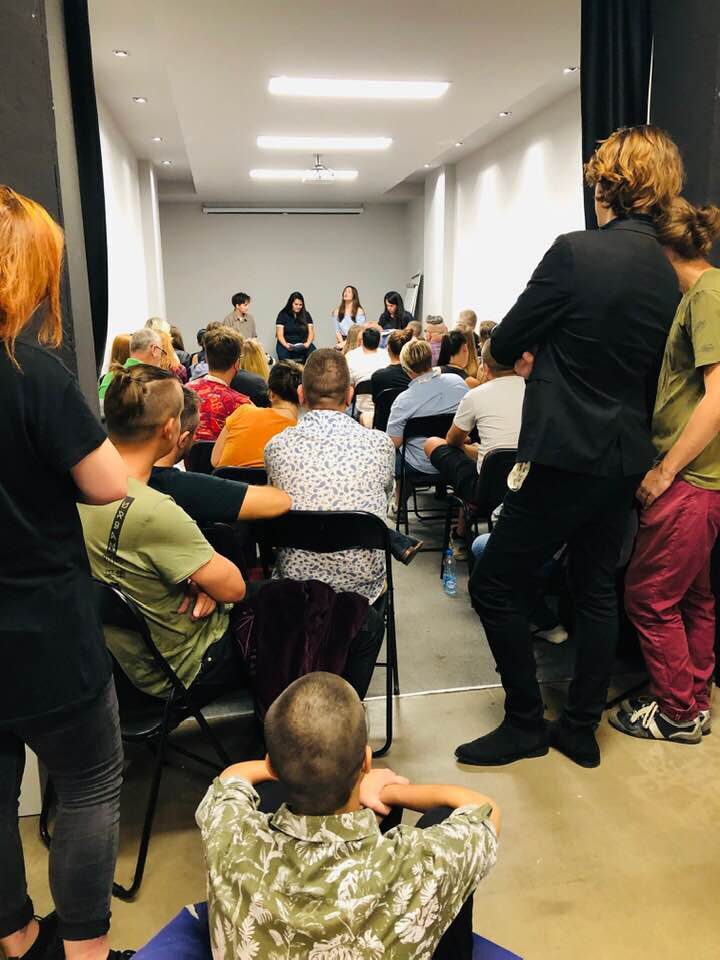
The Queer Café: Hear Our Voices from the Balkans, a devised drama piece written and directed by Joan Lipkin, presented at the Pride Info Center in Belgrade, Serbia, in November 2019. Photo by Joan Lipkin.
In 2017 and 2018, Joan Lipkin had been a guest of Belgrade Pride and the Civil Rights Defenders, a human rights organization based in Stockholm and Belgrade. During both years she engaged in cultural organizing efforts. They included a series of events called the Queer Café, an event Joan founded to promote an opportunity for intentional and facilitated dialogue, wherein the local LGBTQ+ community and visitors openly talked with her and each other about many topics that concern them.
With the permission of the participants, she subsequently transcribed the texts from the conversations, and in the summer of 2019 turned them into a script entitled Queer Café, that was virtually a verbatim, although edited, account of explored topics. After that, naturally, the script development continued.
The process beginning in the autumn of 2019, led to the creation of this approximately half hour documentary drama. It became quite a journey. Joan, who also directed the show, shared the script with several people in our community to get their feedback, as well as consulting with me and a co-translator Pavle Menalo, who was also in charge of logistics. Pavle is a student of ethnology and anthropology, active in the activist, political and cultural scene of Belgrade. These consultations and reviews were completed first to make sure that the text stayed rooted in the culture of the region. Then I proceeded with my work as a dramaturg. I helped locate actors for the performances and attended rehearsals. At Joan’s urging, we planned conversations with the audience after each of our performances as an integral part of each event.
Securing actors was a wrinkle in our otherwise smooth process. Many of the male actors we approached were reluctant to play LGBTQ+ parts. And one of our final cast members did not want to use their real name for fear of being outed, or having assumptions made about their identity. Despite everything, eventually we assembled a great cast.
In reflecting about what distinguishes the work dramaturgically, I concluded that its open structure and democratization are essential concepts upon which the whole performance was built.
The text itself calls for four performers of different ages and varying gender identities, who tell the experiences of approximately 40 LGBTQ+ people from the Balkans who participated in the Café at one or more sessions. The play has a clear structure that follows the path of coming of age, so the characters reflect on quesions, experiences, and issues such as first same-sex attractions, coming out, bullying, families, church, school, work, marriage, partnerships, as well as wider sociopolitical LGBTQ+ topics.
But the biggest beauty of both the text and the show is that it creates and presents a polyphony of voices expressing different attitudes, thinking and life experiences. The storylines of characters interweave so that they create a mix of different perspectives on the play’s subjects. Thus, there is no definitive viewpoint, for instance, on the subject of marriage. The play reveals a wide range of attitudes towards it – monogamous, polyamoric, asexual, romantic, cynical, etc., — but all of the actors’ lines keep in mind the sociopolitical context of the region. Most of the countries in the post-Yugoslav territory don’t even recognize same sex partnerships.
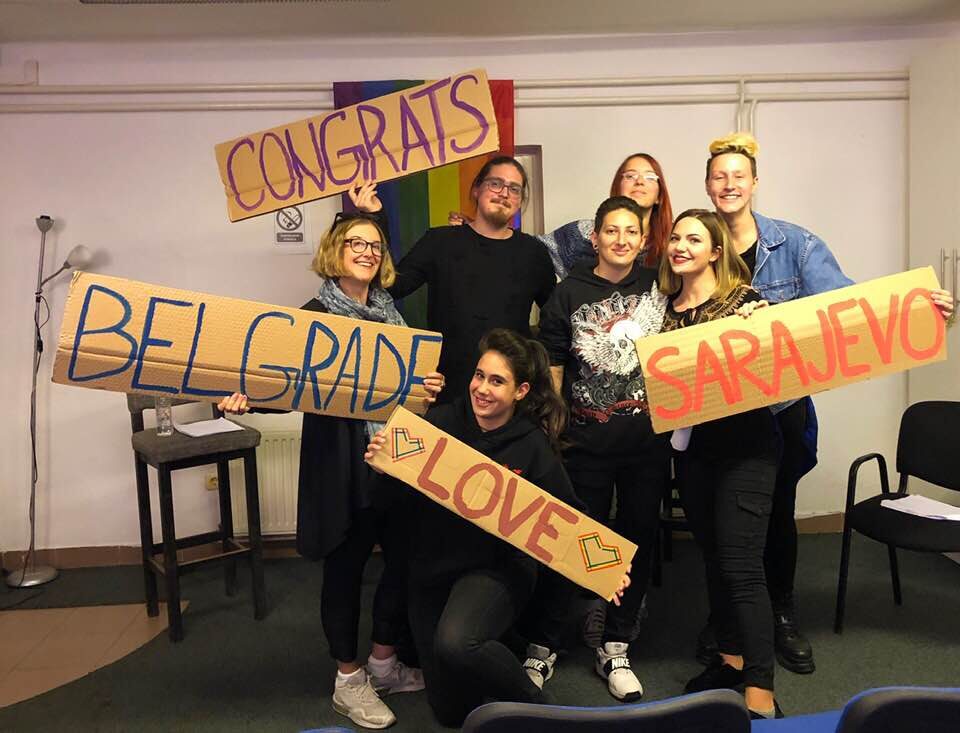
The creative team in Sarajevo, Bosnia in October 2019. Far left, Playwright/Director Joan Lipkin.
Bojana Simić, Slavoljupka Pavlović, Andrijana Tomić and Matija Stefanović are the four actors who portray the characters’ plurality of perspectives. From time to time, they engage in a fierce and emotional argument about the stances their characters have. For example, when Slavoljupka’s character explains how she broke someone’s nose as defense when attacked because of her sexual orientation, Andrijana’s and Bojana’s characters sharply reply that they are against any kind of violence. So who is right? The script asks the audience to decide for themselves. The talk after the show is even more important, because the script reflects that there are no singular answers to the questions presented.
In fact, this show’s structure exhibits an unusual approach in Serbian theatre. If we do have post-show conversations, they tend to be with the director on stage as a kind of higher authority, perhaps being asked questions by a moderator. Post-performance discussions do not usually strongly value and highlight the audience’s involvement and responses as we did with Queer Café.
When the performance of the formal text concluded, the actors, the creative team and the audience had a chance to share their feelings and reflections about the play. Joan Lipkin, as the writer and director, asked all of us to sit in a circle, so we could look at each other and express what we felt and thought about the stories presented. But at this time the main spotlight was on the audience.
In a way, Queer Café continued after the formal performance, because the open structure of the performance allowed the discussion after the show to be seen, as well as experienced, as a natural extension of the production. The conversation with the audience functions as a kind of second act. Perhaps, we might even say that the audience becomes the Queer Café in the initial inquiry and the sharing, and the Queer Café in the dramatic, artistic expression of the inquiry.
The audience’s eagerness to hear the stories from Queer Café , as well as their responses, proves to me that this kind of grass roots theatre is very much needed in Serbia and in the region. LGBTQ+ people want to be represented in theatre and, in my opinion, theatre should be created by and with local communities, not just inside institutions. This especially proves true, not just because the audience was happy to participate in the post-show conversations, but because they were willing to participate more actively in an actual show as it was being created.
Let me explain.
On September 6th, six days before the first show, we organized a pop-up reading of the devised script before any formal performance or announced cast. For this pop-up reading in advance of the production, we offered an opportunity to anyone who wanted to read the lines out loud. We were surprised by how many people wanted to participate. I think we counted 24 volunteers.
Joan divided the script on the spot and organized readers. Audience members were both enthusiastic and also moved to be involved in an important piece of socially-engaged art. Some of the people present had taken part in the Queer Café and seemed overwhelmed with joy to see their stories being staged.
The necessity and importance of this kind of art is also proved by the fact that Joan Lipkin later staged the play in Sarajevo, Bosnia and Herzegovina, with the help of the Open Society Foundation. On October 11th, simultaneous performances of Queer Café occurred in Belgrade and Sarajevo in celebration of National Coming Out Day. This was an historic occasion, as an artistic collaboration between two significant cities had never taken place like this before.
The idea of staging the play in Bosnia and Herzegovina came after several members of human rights NGOs in Sarajevo saw the performance in Belgrade in September. During the staging of this additional production, significant help was provided by Azra Ćulov, a Bosnian translator, masters degree student of linguistics, and human and animal rights activist. She adapted the language of the play into Bosnian, a language that differs from Serbian in terms of dialect and some idioms.
Taking all these circumstances into consideration, it’s even more important that this type of theatre happened in Bosnia and Herzegovina than in Serbia. Homophobia, hate crimes and extreme conservatism are much more common there. That’s why the first Pride parade in Sarajevo occurred no earlier than September 2019.
Due to concerns over safety, the Open Society Foundation promoted the show in Sarajevo strictly through private channels of communication – a private Facebook event page and personal recommendations. Regardless, the performance was a success with an overflow crowd of people showing up and eliciting similar responses as those the audience had in Belgrade.
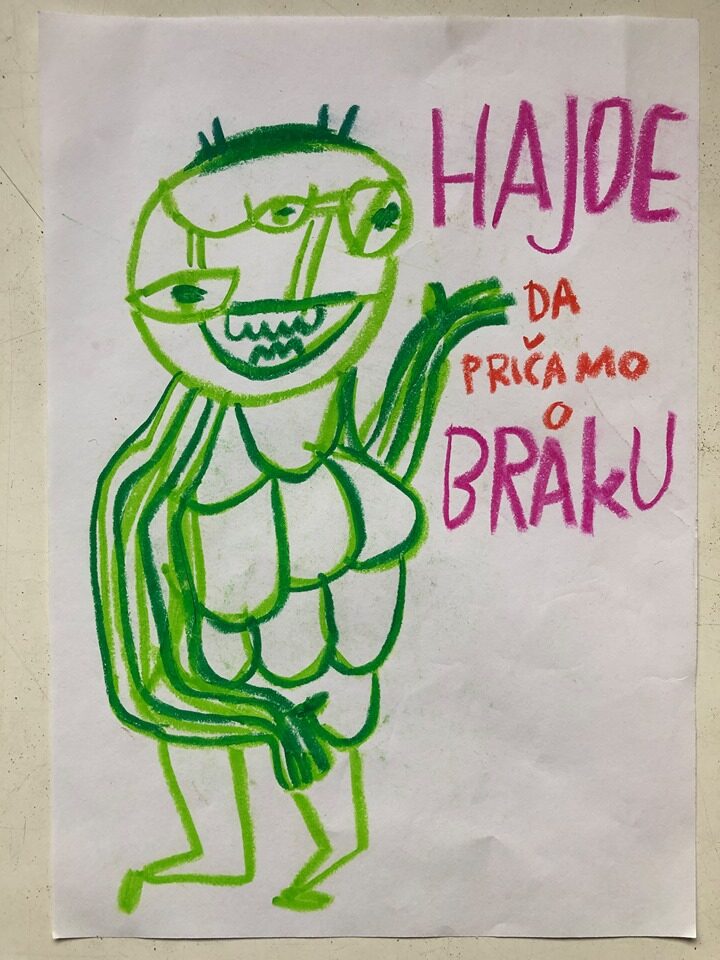
Katie Woznicki’s illustration Let’s Talk About Marriage appears next to the radio-play recording of The Queer Café on Radio Arapat’s mixcloud webpage.
As a dramaturg, I also adapted the play into the format of a radio-drama. As such, the play won the prize for the Competition for the Best Socially Engaged Radio-Play in Serbia. Radio Aparat, which is translated to Radio Device in English, sponsored this competition. As a result, Marija Balubdžić, a Serbian director with a background in music, directed and recorded the play, which had its premiere on December 22, 2019 online through Radio Aparat. The recording is available on the station’s mixcloud webpage as the program: https://www.mixcloud.com/RADIO_APARAT/radio-drama-queer-cafe-čujte-naše-glasove-uvodni-razgovor/.
Both the script and the performance are important pieces of art for the local and regional scene despite their brevity. The tremendous response of the audiences in two different countries, as well as the honor of winning a national competition, made that abundantly clear.
But one piece of art, excellent as it is, is only the beginning for meaningful change. I hope to see more opportunities in Serbia for different types of community theatre to happen and for LGBTQ+ topics to find their place on stage.
Borisav Matić is a theatre, literary and film critic and a dramaturg from Serbia. He is currently an undergraduate student of dramaturgy at the Academy of Arts in Novi Sad. He has attended many national, regional and international scholarly and writing courses. Since 2017, he’s been writing critiques and articles regularly for several print, online, radio and TV publications and media. He’s the founder and the author of the portal Independent Critics (nezavisnakritika.com) and the show Radio Independent on the Serbian internet Radio Aparat – both the portal and the show dedicated to theatre criticism. Borisav is a dramaturg on two theatre shows: Captain Dirty Fred, based on the Hungarian novel of the same name (he’s also the author of the dramatization), and The Queer Café: Hear Our Voices from the Balkans written and directed by Joan Lipkin – both shows staged in Belgrade. Borisav currently lives in Novi Sad, and divides his time between Novi Sad and Belgrade.
This post was written by the author in their personal capacity.The opinions expressed in this article are the author’s own and do not reflect the view of The Theatre Times, their staff or collaborators.
This post was written by Borisav Matić.
The views expressed here belong to the author and do not necessarily reflect our views and opinions.

